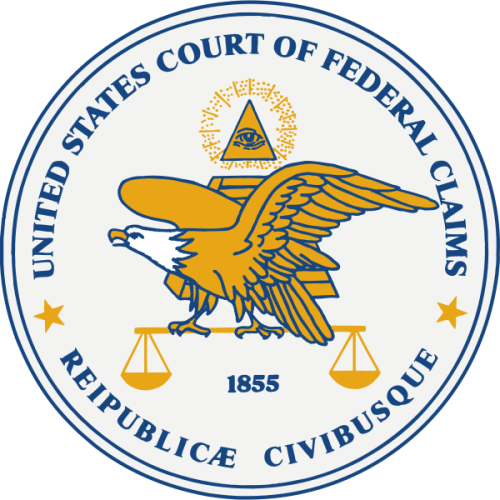
The U.S. District Court for the Southern District of California is currently short five judges. The Trump Administration and California’s Democratic senators have settled on a package of five nominees to fill the vacancies. One of the Democratic picks is Knut Johnson, one of the most prominent criminal defense attorneys in San Diego.
Background
Knut Sveinbjorn Johnson was born in Chicago in 1957. Johnson grew up in New Mexico and then attended Tulane University.[1] He then received a J.D. cum laude from the University of San Diego School of Law in 1986.[2]
After law school, Johnson spent two years as an associate at Jenkins & Perry before joining the Federal Defenders of San Diego, Inc..[3] In 1994, he moved to McKenna & Cuneo as an Associate before opening his own law practice in 1996.[4] Johnson maintains that practice to this day.
History of the Seat
Johnson has been nominated to the U.S. District Court for the Southern District of California, to a seat vacated on February 6, 2018, by Judge John Houston’s move to senior status. Johnson applied with selection committees set up by California’s Democratic Senators Dianne Feinstein and Kamala Harris and interviewed with each in 2018.[5] In February 2019, Johnson interviewed with the White House and was selected as a nominee. Johnson was nominated on November 2, 2019.
Legal Experience
Johnson has spent virtually his entire career in criminal defense, making a name for himself as one of the most prominent criminal defense attorneys in San Diego, including service as the President of the San Diego Criminal Defense Bar Association. Over the course of his career, Johnson has tried over 70 criminal cases, although he has only tried one civil bench trial.[6]
Over the course of his career, Johnson has represented clients in some of San Diego’s most colorful cases. For example, Johnson has represented a military officer who was charged with the beating of an illegal immigrant,[7] the “tattoo bandit” who robbed 22 people in San Diego,[8] the executive of a bidet company that faced charges of alleged false advertising,[9] and an individual who allegedly paid babysitters to bring him children to molest.[10]
Among his more significant cases, Johnson was court appointed to represent Everardo Arturo Paez, an accused Mexican drug kingpin.[11] He also represented Jason Sullivan, the former social media advisor for Roger Stone.[12]
Political Activity
Throughout his career, Johnson has occasionally made political donations, all to Democrats.[13] For example, Johnson donated $1625 to the presidential campaign of Hillary Clinton.[14] Johnson also gave to Rep. Scott Peters and Sen. Kamala Harris.[15]
Writings
Johnson has occasionally written on the law, generally focused on providing guidance in navigating the criminal justice process. For example, in 1997, Johnson authored an article on subpoenas.[16] The article advises criminal defendants on their rights relating to subpoenas and potential issues raised under the Fourth Amendment.[17] He also authored another article advising solo practitioners on managing their practice.[18]
Overall Assessment
Criminal defense attorneys are vital to the orderly and effective operation of the criminal justice system. Unfortunately, when put up for judgeships, defense attorneys often face demonization because of the clients they represent. However, Johnson’s nomination by the Trump Administration should insulate him from the worst of the attacks. As his background demonstrates both the legal experience and the acumen to be a federal judge, Johnson should be confirmed comfortably.
[1] Sen. Comm. on the Judiciary, 116th Cong., Knut Johnson: Questionnaire for Judicial Nominees 1.
[2] See id.
[3] See id. at 2.
[4] See id.
[5] Id. at 46-47.
[6] Id. at 32.
[7] Dana Calvo, Civil Rights Indictment Unsealed, A.P. Online, Dec. 20, 1997.
[8] Kelly Wheeler, San Diego’s Alleged ‘Tattoo Bandit’ Goes On Trial, City News Service, Apr. 29, 1998.
[9] Don Bauder, Firm’s Bidet Claims Flush With Falsehoods, Regulators Allege, San Diego Union-Tribune, July 22, 1998.
[10] Kelly Wheeler, Man Who Got Babysitters to Bring Him Children to Molest Gets 45 Years to Life, City News Service, Aug. 5, 2010.
[11] Robert J. Caldwell, An Uncooperative Drug Kingpin and a Curious Plea Bargain, Copley News Service, Oct. 26, 2001.
[12] Kate Sullivan, Roger Stone Says He is ‘Prepared’ for Possibility of Special Counsel Indictment, CNN.com, May 20, 2018.
[13] Center for Responsive Politics, https://www.opensecrets.org/donor-lookup/results?name=Knut+Johnson&cycle=&state=&zip=&employ=&cand= (last visited Dec. 25, 2019).
[14] Id.
[15] Id.
[16] Knut S. Johnson, Responding to Subpoenas: Constitutional and Practical Issues, 21 Champion 10 (Jan/Feb 1997).
[17] See id.
[18] Knut S. Johnson, Practice Management, on Your Own Solo and Small Firm Practices, 18 GP Solo 22 (Sept. 2001).



